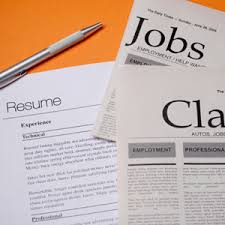 A resume should be your ticket to a better future. That one little paper should be the key to landing your dream job, or at least a job that can pay the bills.
A resume should be your ticket to a better future. That one little paper should be the key to landing your dream job, or at least a job that can pay the bills.
But, the awful truth is your resume could actually be preventing you from getting a job.
How can that be? Well, even the most well-thought out resumes can benefit from a little editing. These days, with job-seekers outnumbering positions, employers are looking for the absolute perfect candidate, and the first impression they have of you is when they take a look at your resume.
If you’re still looking for a job after weeks or months of searching, it might not hurt to try these resume tweaks. You might be pleasantly surprised by the results!
1. Create a Targeted Resume for Each Position
I know – it was hard enough to create one resume! But, it really is a good idea to create targeted resumes based on each position you’re applying for, especially if you’re applying to positions in different areas or you’re changing careers. Targeted resumes give you a chance to show each employer exactly what you have to offer and can bring to the company.
Creating multiple job resumes really isn’t as hard as is sounds. Start with a base resume, and simply edit and tweak it to address specific job requirements of each position you’re applying to.
2. Address Job Requirements
Employers want to know exactly what makes you better qualified for a position than other applicants. Your resume gives you a chance to spell that out clearly.
Instead of ratting off a list of general strengths, take the time to address each job requirement. Make a list of requirements for a job, and work them into your resume.
3. List Accomplishments, Not Duties
Simply put, listing your former job duties is not only boring, but it also tells potential employers little about what you actually have to offer. Adding a short and sweet description of your former job duties isn’t necessarily a bad idea, but it’s imperative that you also list your accomplishments and achievement.
You need your resume to show that you’re not just about words, but about results. List your academic and professional accomplishments and achievements and show potential employers that you are a valuable asset to their team.
4. Get Rid of Outdated and Irrelevant Skills
Ten years ago, potential employers may have been impressed that you were proficient in Microsoft Word, the Internet, or email. Today…not so much.
Consider nixing any outdated and irrelevant skills. That includes any skills that could be considered basic by today’s standards, like experience in word processing, spreadsheets, and email. You should also consider omitting any skills that are not directly relevant to the job you’re applying to. For instance, a restaurant could probably care less about your awesome chainsaw skills when you’re applying for a server position. Save that for the forestry position.





